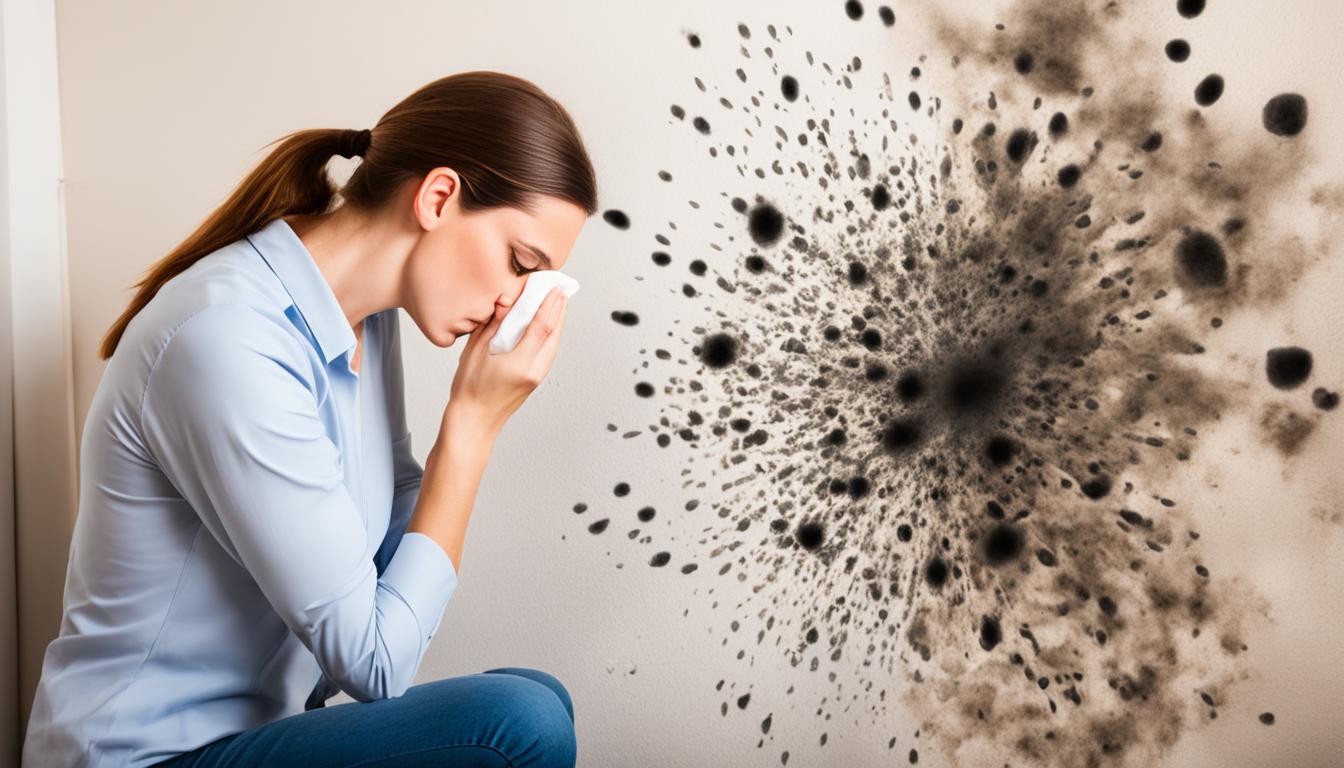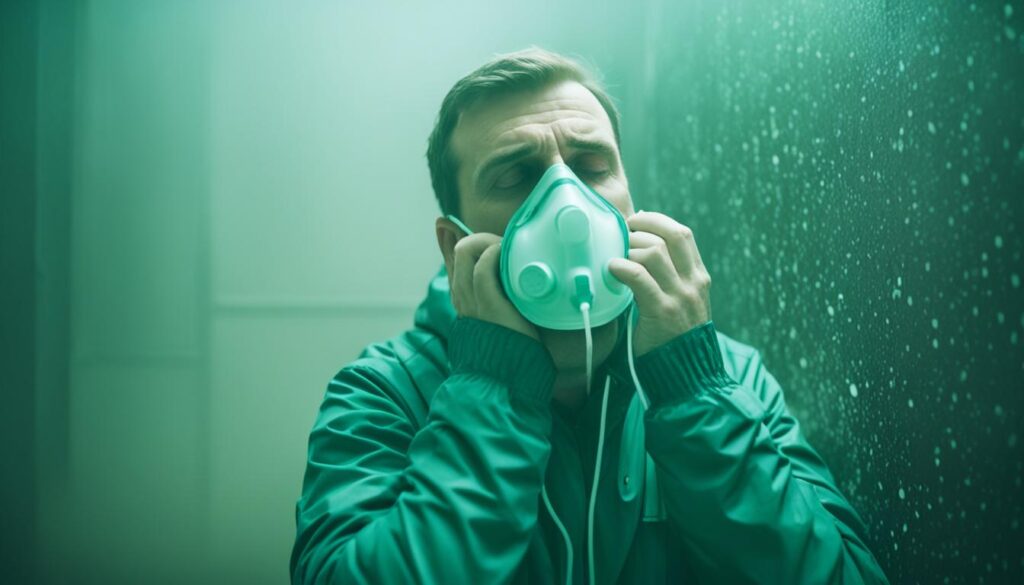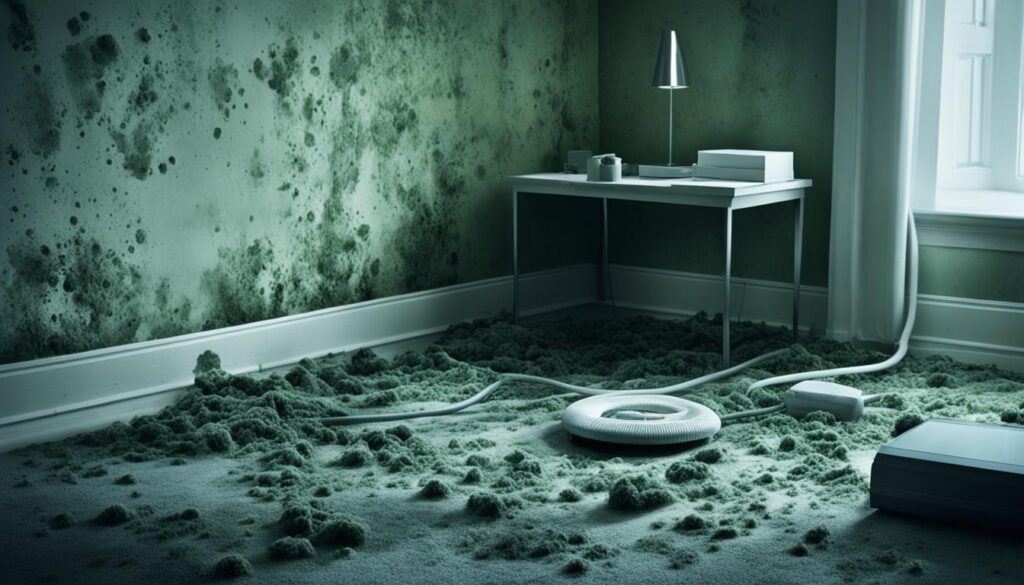
Signs of Mold Exposure: Symptoms to Watch For
Are you experiencing persistent health issues that you can’t seem to find the cause of? Mold exposure may be the culprit. Mold is a common household problem that can have a significant impact on your health if left unchecked. In this section, we will explore the signs and symptoms of mold exposure that you should be aware of, along with its potential health impacts.
Mold exposure can lead to a range of symptoms, varying from person to person. These symptoms can manifest in different ways, affecting various body systems. It is essential to be able to identify these signs to protect yourself and your loved ones.
Key Takeaways:
- Recognizing the signs of mold exposure is crucial for protecting your well-being.
- Mold exposure symptoms can vary depending on the individual and extent of exposure.
- Understanding the health impacts of mold exposure highlights the importance of prompt action.
- If you suspect mold in your environment, contact Fix Mold Miami at 305-465-6653 for professional mold assessment and remediation services.
Common Symptoms of Mold Exposure
Exposure to mold can have various effects on an individual’s health. Recognizing the common symptoms of mold exposure is crucial in order to take appropriate action and protect your well-being. The symptoms can vary depending on the individual and the extent of their exposure.
Here are some common signs to watch for:
- Allergic reactions: Some individuals may experience allergic reactions when exposed to mold. This can include sneezing, coughing, itching, and watery eyes.
- Respiratory issues: Mold spores can irritate the respiratory system, leading to symptoms such as wheezing, shortness of breath, and chest tightness.
- Nasal congestion: Mold exposure may cause nasal congestion or a runny nose.
- Skin irritation: Direct contact with mold or mold-infested materials can cause skin irritation, such as rashes or hives.
- Fatigue: Feeling tired or exhausted without any apparent reason can be a symptom of mold exposure.
- Headaches: Some individuals may experience persistent headaches or migraines when exposed to mold.
- Difficulty concentrating: Mold exposure can affect cognitive function, leading to difficulty concentrating or remembering things.
If you experience any of these symptoms and suspect mold in your environment, it is essential to address the issue promptly. Seeking professional help for mold assessment and remediation is recommended for a thorough and effective solution.
Remember, early detection and intervention are key to minimizing the health impacts of mold exposure.

Protect Yourself from Mold Exposure
Preventing mold growth and exposure is crucial for maintaining a healthy living environment. Here are some tips to help protect yourself:
- Keep indoor areas well-ventilated and reduce humidity levels to prevent mold growth.
- Repair any leaks or water damage promptly to prevent mold from thriving.
- Use exhaust fans in bathrooms and kitchens to reduce moisture buildup.
- Clean and dry any damp or wet areas within 24-48 hours to prevent mold growth.
- Regularly inspect and maintain your home’s HVAC system to ensure proper moisture control.
- Avoid keeping indoor plants if you are sensitive to mold.
- Wear protective gear, such as gloves and masks, when handling mold-infested materials.
By being proactive and taking preventive measures, you can reduce the risk of mold exposure and protect your health.
Health Impacts of Mold Exposure
When it comes to mold exposure, the effects on health can be significant. Mold can trigger a range of health issues, particularly in individuals with compromised immune systems or pre-existing respiratory conditions.
The Respiratory System
The respiratory system is particularly vulnerable to the health impacts of mold exposure. When mold spores are inhaled, they can cause respiratory symptoms such as coughing, wheezing, and shortness of breath. Prolonged exposure to mold can lead to more severe respiratory conditions, including asthma and bronchitis.
Furthermore, individuals who are allergic to mold may experience even more pronounced respiratory symptoms. This can be particularly worrisome for those with asthma, as mold exposure can trigger asthma attacks and exacerbate existing symptoms.
Allergic Reactions
In addition to respiratory issues, mold exposure can also lead to allergic reactions. Common symptoms of mold allergies include nasal congestion, sneezing, itchy eyes, and skin irritation. These allergic reactions can be bothersome and may significantly impact an individual’s quality of life.
“Mold exposure can cause a wide range of health problems, especially for individuals who are sensitive or allergic to mold. It’s essential to address any mold-related concerns promptly to minimize the associated health risks.” – Dr. Emily Johnson, Allergist
Other Health Problems
Besides respiratory issues and allergies, mold exposure has been linked to other health problems as well. Some studies suggest that prolonged exposure to mold may contribute to neurological symptoms, such as headaches and difficulty concentrating. Additionally, mold exposure has been associated with fatigue, skin rashes, and even gastrointestinal problems in certain individuals.
To protect your health and well-being, it is vital to address any mold-related concerns promptly. Whether it’s in your home or workplace, taking immediate action to identify and remediate mold can help mitigate the potential health impacts.

Conclusion
After exploring the signs and symptoms of mold exposure, it is clear that this issue should not be taken lightly. Mold exposure can have significant health impacts, ranging from respiratory issues to allergic reactions. Recognizing the signs is crucial for protecting your well-being.
If you experience common symptoms such as chronic coughing, sneezing, or unexplained fatigue, it is important to consider the possibility of mold in your environment. Prompt action is necessary to address any mold-related concerns and prevent further health complications.
In conclusion, being aware of the signs and symptoms of mold exposure is essential for maintaining a healthy living environment. If you suspect mold in your home or workplace, don’t hesitate to reach out to a professional mold assessment and remediation service such as Fix Mold Miami at 305-465-6653. Their expertise will ensure a thorough evaluation and effective mold removal, safeguarding the health of you and your loved ones.




